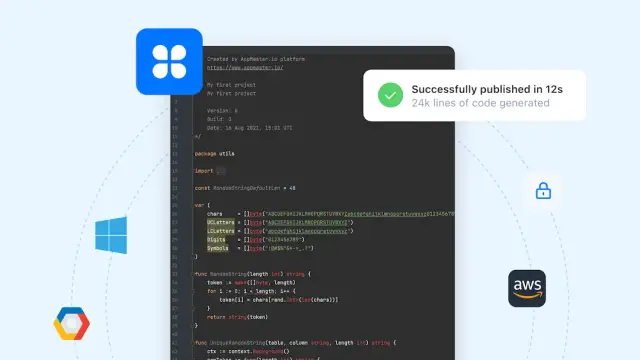The Best Refactoring Books
Discover the best refactoring books for developers to elevate your coding skills and design patterns.

Refactoring is a crucial skill in software development that helps you elevate your code's quality, design, and maintainability. It's the process of restructuring and improving your existing code without altering its external behavior or functionality. With the rapid growth of software development and programming languages, understanding the principles of refactoring is more important than ever.
Even seasoned developers can benefit from a thorough understanding of refactoring techniques, as these skills can be applied across multiple languages and platforms. Refactoring books provide valuable insights, practical examples, and proven methodologies that enable you to understand the techniques and best practices involved in this essential software development practice. The following sections will introduce you to some of the best refactoring books catering to different expertise and programming languages.
Foundational Refactoring Books
These foundational books on refactoring are ideal for developers looking to get started with the essentials of refactoring. They cover fundamental techniques, design patterns, and best practices that apply to various programming languages and help you understand the principles behind clean and maintainable code.
-
Refactoring: Improving the Design of Existing Code (2nd Edition) by Kent Beck and Martin Fowler
This book is a classic and an absolute must-read for anyone interested in refactoring. Kent Beck and Martin Fowler explain the principles of refactoring, the role of testing, and the importance of a software's design quality. The book has practical examples showcasing various refactoring techniques, making it easy for readers to grasp and apply the concepts to their code.
-
Working Effectively with Legacy Code by Michael Feathers
Working with legacy code can be challenging and frustrating. Michael Feathers's book addresses the pain points in dealing with such code and offers practical techniques to improve it. The book focuses on identifying issues in legacy systems, writing tests, and applying refactoring strategies to increase code maintainability and readability. It's an invaluable resource for developers working with complex, legacy systems.
-
Clean Code: A Handbook of Agile Software Craftsmanship by Robert C. Martin
Robert C. Martin's Clean Code is a comprehensive guide to writing elegant, readable, and maintainable code. Although not strictly a refactoring book, it provides essential knowledge and best practices that developers should follow to enhance code quality. The book discusses principles, patterns, and practices of writing clean code, as well as code smells and heuristics that can help identify problematic areas in the codebase. It's a must-read for anyone interested in improving their coding skills and developing clean, maintainable software.

Refactoring Books for Specific Programming Languages
Refactoring techniques can vary depending on the programming language being used. The following books are tailored to specific languages, providing detailed examples and guidelines that make it easier for developers to apply these techniques in their day-to-day work. These books suit beginners and experienced developers who aim to improve their refactoring skills in a particular language.
-
Refactoring JavaScript by Evan Burchard
This book is specifically designed for JavaScript developers, focusing on refactoring techniques and best practices relevant to the language. It covers topics such as functional programming, modularization, and testing in the context of JavaScript. The book also provides practical examples and use cases, enabling developers to understand and apply these techniques in their own projects.
-
Refactoring Ruby Edition by Jay Fields, Shane Harvie, Martin Fowler and Kent Beck
This book brings the core concepts of Martin Fowler's "Refactoring" to the Ruby language. It covers many refactoring techniques specific to Ruby and numerous examples demonstrating how to apply them to real-world projects. The book also discusses Ruby idioms, best practices, and patterns that can help developers write more concise, flexible, and maintainable Ruby code.
By reading these refactoring books, you can hone your skills, learn best practices, and become a better developer. Remember that refactoring is an ongoing process and should be integrated into your daily development routine to maintain clean, readable, and maintainable code consistently.
Advanced Refactoring Techniques and Design Patterns
As you progress in your software development career and gain expertise in refactoring, you may want to explore more advanced topics that delve deeper into design patterns and sophisticated refactoring strategies. These books will guide you through powerful and highly efficient techniques to produce clean and maintainable code.
- Design Patterns: Elements of Reusable Object-Oriented Software by Erich Gamma, Richard Helm, Ralph Johnson, and John Vlissides: Known as the 'Gang of Four' (GoF) book, this classic reference introduces 23 design patterns that provide reusable solutions for common problems in object-oriented software design. The authors use case studies and practical examples to effectively demonstrate how to apply these patterns. This book is indispensable for experienced developers who wish to master design patterns and apply them to refactoring.
- Refactoring to Patterns by Joshua Kerievsky: This book bridges the gap between refactoring and design patterns. Kerievsky offers practical guidance on refactoring existing code to meet contemporary design principles. He also discusses how to evolve poorly designed code to adapt to the ever-changing needs of a software system. Aimed at developers experienced in design patterns, this book helps you understand what level of abstraction is ideal for your codebase.
- Enterprise Integration Patterns: Designing, Building, and Deploying Messaging Solutions by Gregor Hohpe and Bobby Woolf: This comprehensive guide covers integration patterns for enterprise applications and deeply delves into messaging systems. The authors present over 60 patterns for designing and implementing integration solutions using messaging technologies. By mastering these patterns, you can refactor complex code related to distributed systems and ensure scalability as your applications grow in size and scope.
Putting Refactoring Knowledge into Practice
Reading refactoring books and understanding advanced techniques is just one step in becoming proficient at refactoring. Here are some ways to put your newly acquired knowledge into practice:
Work on real-world projects
Get involved in open-source projects, your workplace assignments, or personal projects to gain hands-on experience in refactoring code. Apply the techniques you've learned to improve existing codebases.
Engage in pair programming and code reviews
Collaborate with your peers through pair programming and perform code reviews to get feedback on your refactoring efforts. This will help you identify areas where your code can be further optimized, and you might learn new techniques from your colleagues.
Participate in coding challenges
Register for coding competitions and participate in solving algorithmic problems. As you submit solutions, you'll receive peer reviews or automated feedback that can give you insights into your code's quality and ways to improve it through refactoring.
Use refactoring tools
Many Integrated Development Environments (IDEs) offer built-in refactoring tools that can automate some of the repetitive tasks involved in refactoring. Familiarize yourself with these tools and use them to improve your refactoring efficiency.
Continuously learn
Attend conferences, webinars, and workshops to stay up-to-date with the latest developments and trends in refactoring and software development. This will help you keep your refactoring skills sharp and relevant in the ever-evolving software industry. Exploring no-code and low-code platforms like AppMaster can also be beneficial for developers to learn how a visual approach to application development can lead to clean and optimized code.

As you work on your own applications, you'll indirectly learn advanced techniques and reduce the need for frequent refactoring. The AppMaster no-code platform focuses on generating efficient, maintainable code through a user-friendly visual interface, which can assist you in your quest for better refactoring skills.
Refactoring is a critical skill for all software developers to master. By continuously learning, practicing, and applying the knowledge gained from the best refactoring books, you'll elevate your coding skills, enhance your software's reliability, and become an invaluable asset to any development team.
FAQ
Refactoring is the process of reorganizing or modifying the existing code to improve its structure, readability, maintainability, and performance, without changing its external behavior or functionality.
Refactoring is essential for developers because it enhances code quality, simplifies complex structures, makes the code easier to understand, reduces debugging time, and promotes maintainability, reusability, and scalability.
The key principles of refactoring include: incremental changes, preserving software behavior, improving code readability, reducing complexity, adhering to the SOLID principles, and continuous testing to ensure code reliability.
"Refactoring: Improving the Design of Existing Code" by Martin Fowler is a highly recommended book for beginners to learn effective and efficient refactoring techniques and practices.
Yes, there are refactoring books specifically written for various programming languages, such as JavaScript, Python, Ruby, and Java. Some examples are "Refactoring JavaScript" by Evan Burchard and "Refactoring to Patterns" by Joshua Kerievsky.
Some refactoring techniques that can help improve performance include decomposing lengthy methods, extracting classes or modules, reducing duplicated code, optimizing loops, simplifying conditional expressions, and minimizing memory allocation and method calls.
Refactoring books help developers by providing practical guidance, examples, tips, and best practices for improving code quality and structure. They also discuss the rationale behind specific refactoring techniques and help developers understand the importance of maintainable and clean code.
You can practice refactoring skills by working with real-world projects, engaging in pair programming, performing code reviews, participating in coding challenges, and applying techniques learned from refactoring books and other resources.
AppMaster is a no-code platform that focuses on creating applications using visual business processes and design tools. However, by generating clean and maintainable code, it indirectly helps improve your application's structure and minimize the need for extensive refactoring.





